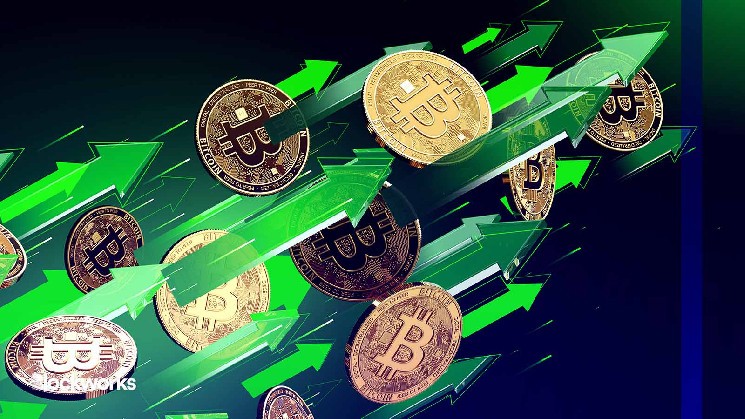Shaky US Treasury Could Push Buyers Back to Bitcoin

The cascade of bank failures over recent weeks seems to be spurring investors to find new ways to hedge against a weakening system.
And the biggest bank of all — the US Treasury — is looking a little shaky, too.
Ongoing talk around debt ceiling and defaults is certainly not helping the cause for confidence in America’s economy, but it may attract buyers to hard assets like bitcoin to weather the storm.
On a recent 1000X podcast, Avi Felman, head of digital asset trading at GoldenTree, and global head of trading at Cumberland, Jonah Van Bourg, spoke to Blockworks about the market’s possible reactions to a technical default. This would occur if the United States holds off — even briefly — on paying back bondholders.
Van Bourg asks Felman, “What do you think the price of bitcoin is in that scenario? If that headline hits the tape?”
“My bet is that the headline sends us past $30,000, maybe to $35,000,” Felman replies.
Felman suggests that a confluence of debt ceiling panic and the narrative of bitcoin as a hard asset could lead to a burst in buying sentiment.
Van Bourg is even more optimistic about bitcoin (BTC) market action, “I think we could definitely see all-time highs in short order if the United States were to default.”
The risk-free rate is no longer risk-free
“Whoever you are, wherever you live in the world, if you have a spreadsheet with money in it, you have to rewrite some cells and some formulas if the United States defaults. Like, the risk-free rate is no longer risk-free.”
Van Bourg suggests a default could be “the most seminal event in financial history,” during which bitcoin prices could test or even exceed the all-time high of $70,000. “I think you’d see people move money out of fiat and into crypto in droves if fiat suddenly became unstable.”
Felman replies bluntly, “I think you’re insane. I don’t think this is going anywhere near $70,000.”
Felman argues that it’s not feasible for prices to reach all-time highs “mostly because I just don’t know where that buying is coming from.”
“Retail’s not buying on it. They might buy a little bit.”
Felman suggests it’s possible that a rush to $35,000, mostly propelled by high net-worth buyers, could draw some retail buyers back in. However, he notes that “even then,” retail doesn’t feel as rich or as bored as they were during Covid-19.”
The perfect storm
Felman points to the perfect conditions for the previous run-up to all-time highs. “You’re locked in your house, you have stimulus checks. You can’t do anything. Your entire life has just gone online. And that led to crypto going nuts.”
Van Bourg suggests a different set of factors could cause similar behavior, but in the longer term.
“Gen Z people,” he says, “it seems like they’re less doing the sorts of things that I did when I was young and more like just chasing apparitions of Pokemon around abandoned lots with their phone or living on Fortnite, watching a Travis Scott concert on the internet.”
The Gen Z crowd, Van Bourg says, is growing up with the experience of innumerable hours spent online. “Crypto internet money is going to become more of a thing than fiat for a lot of people.”
“The seamlessness of the experience of moving value around and moving digital goods and services around relative to moving actual goods and services and fiat currency — It’s such a drastic improvement.”
“Eventually for certain people, you will have that perfect storm of constant economic activity inside of some game or reality that isn’t necessarily what us ‘olds’ think of as normal.”
“As parents get older,” Felman adds, wealth reallocation to the younger generation “is gonna bring a lot of money into digital assets.”






 Bitcoin
Bitcoin  Ethereum
Ethereum  Tether
Tether  USDC
USDC  TRON
TRON  Dogecoin
Dogecoin  Cardano
Cardano  Monero
Monero  Bitcoin Cash
Bitcoin Cash  Chainlink
Chainlink  LEO Token
LEO Token  Stellar
Stellar  Zcash
Zcash  Litecoin
Litecoin  Hedera
Hedera  Dai
Dai  Cronos
Cronos  OKB
OKB  Tether Gold
Tether Gold  Ethereum Classic
Ethereum Classic  KuCoin
KuCoin  Cosmos Hub
Cosmos Hub  Gate
Gate  Algorand
Algorand  Dash
Dash  VeChain
VeChain  Stacks
Stacks  Tezos
Tezos  TrueUSD
TrueUSD  Decred
Decred  IOTA
IOTA  Theta Network
Theta Network  Basic Attention
Basic Attention  NEO
NEO  Synthetix
Synthetix  Qtum
Qtum  0x Protocol
0x Protocol  Ravencoin
Ravencoin  DigiByte
DigiByte  Zilliqa
Zilliqa  Nano
Nano  Siacoin
Siacoin  Numeraire
Numeraire  Waves
Waves  Ontology
Ontology  Status
Status  Enjin Coin
Enjin Coin  BUSD
BUSD  Hive
Hive  Pax Dollar
Pax Dollar  Lisk
Lisk  Steem
Steem  Huobi
Huobi  OMG Network
OMG Network  Bitcoin Gold
Bitcoin Gold  NEM
NEM  Augur
Augur